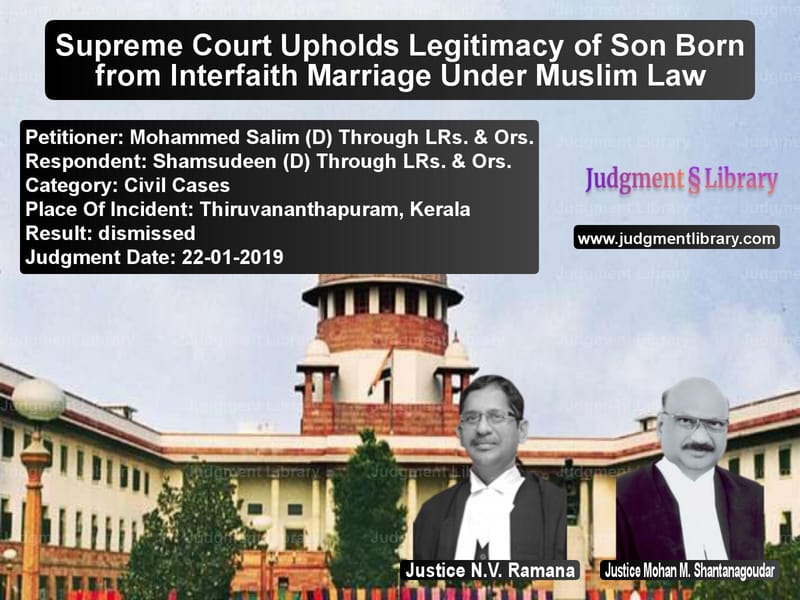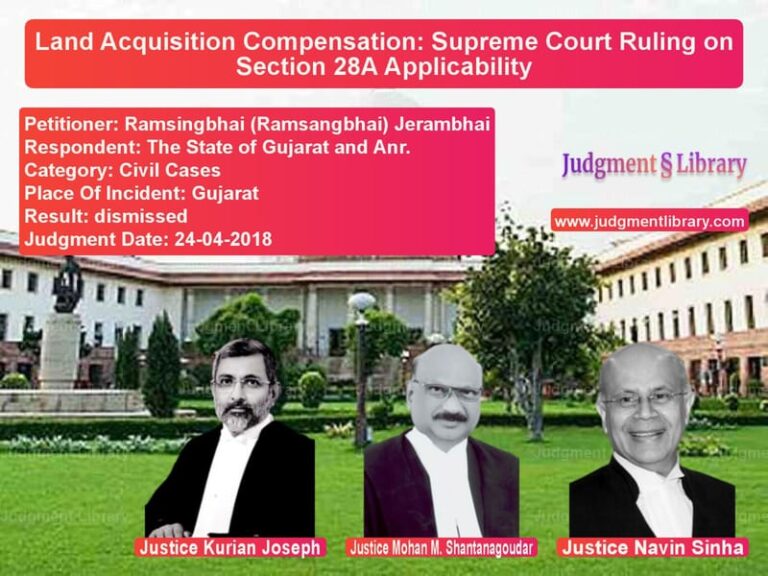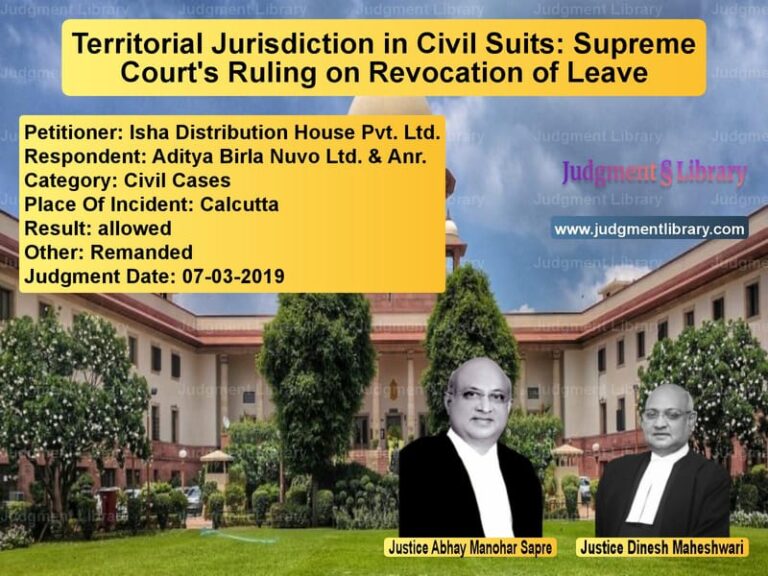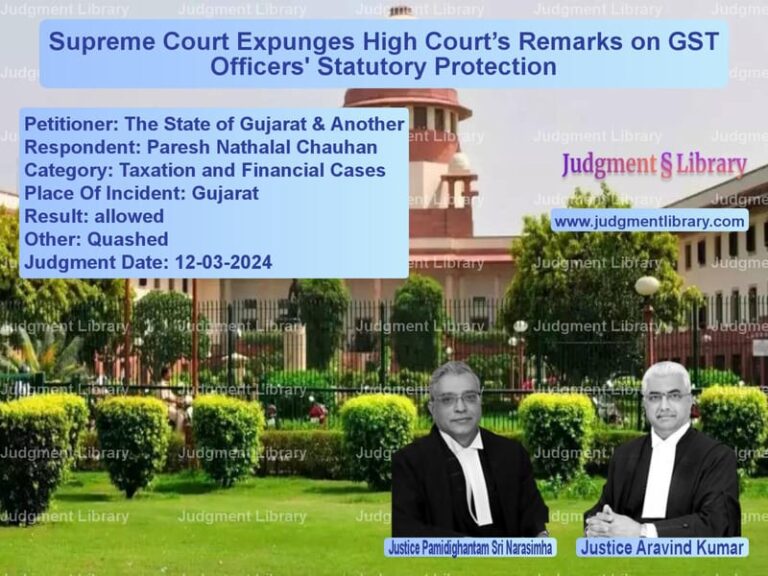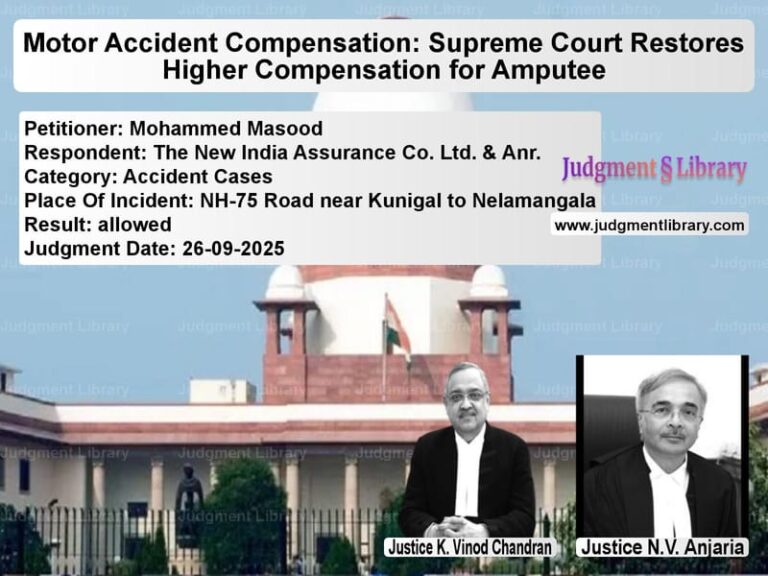Supreme Court Upholds Legitimacy of Son Born from Interfaith Marriage Under Muslim Law
The case of Mohammed Salim (D) Through LRs. & Ors. vs. Shamsudeen (D) Through LRs. & Ors. is a landmark ruling concerning inheritance rights under Muslim law. The Supreme Court upheld the High Court’s decision, affirming that a son born out of an irregular (fasid) marriage between a Muslim man and a Hindu woman is legitimate and entitled to inheritance.
The Court ruled that although the marriage was not a valid (sahih) one under Muslim law, it was not void (batil) but merely irregular (fasid). Consequently, the child born out of such a marriage was entitled to inherit his father’s property, as per the established principles of Islamic jurisprudence.
Background of the Case
The case revolved around a dispute over inheritance rights in a family governed by Muslim personal law. The plaintiff, Shamsudeen, filed a suit for partition and possession of his share in the ancestral property, claiming that he was the legitimate son of Mohammed Ilias, who had married a Hindu woman named Valliamma.
The defendants, who were other legal heirs of Mohammed Ilias, contested the claim, arguing that since Valliamma was a Hindu at the time of marriage, their union was void under Muslim law, and thus, Shamsudeen was not entitled to inherit any property.
Key Legal Issues
- Whether the marriage between a Muslim man and a Hindu woman was valid under Muslim law.
- Whether the child born from such a marriage could inherit property.
- The distinction between a valid (sahih), irregular (fasid), and void (batil) marriage under Islamic law.
- Whether the plaintiff had sufficient evidence to establish his legitimacy and inheritance rights.
Petitioners’ (Defendants’) Arguments
The defendants contended that Valliamma was not a legally wedded wife of Mohammed Ilias, as she was a Hindu at the time of their marriage and had not converted to Islam. Their counsel argued:
“Since Valliamma was a Hindu at the time of marriage, the union was void, and the plaintiff, being born out of such a marriage, could not inherit any share in the property.”
The defendants further claimed that there was no proper evidence to establish the plaintiff’s legitimacy as the son of Mohammed Ilias.
Respondents’ (Plaintiff’s) Arguments
The plaintiff, Shamsudeen, maintained that he was the son of Mohammed Ilias and that their marriage was recognized under Muslim law, albeit as an irregular (fasid) marriage. His counsel contended:
“Muslim law does not treat a marriage between a Muslim man and a Hindu woman as void (batil). It is merely irregular (fasid), and children born out of such a wedlock are legitimate and entitled to inherit property.”
The plaintiff also presented evidence, including official birth records and the testimony of family members, to establish his legitimacy.
Supreme Court’s Observations
The Supreme Court, comprising Justices N.V. Ramana and Mohan M. Shantanagoudar, upheld the High Court’s findings. The Court ruled:
“A marriage between a Muslim man and a Hindu woman is not void (batil) but merely irregular (fasid). A child born from such a marriage is legitimate and entitled to inherit the father’s property.”
The Court relied on various Islamic legal texts, including Mulla’s Principles of Mohammedan Law, which state that children born from a fasid marriage are considered legitimate and inherit from their father.
Additionally, the Court examined birth records and concluded:
“The official birth register clearly indicates that the plaintiff is the son of Mohammed Ilias and Valliamma. There is no contradiction in the evidence presented.”
Final Judgment
Based on the legal principles and available evidence, the Supreme Court ruled:
“The appeal fails and stands dismissed. The plaintiff is entitled to inherit his share in the property of Mohammed Ilias.”
Significance of the Judgment
- Clarification of Muslim Personal Law: The ruling reinforces the principle that a marriage between a Muslim man and a Hindu woman is irregular but not void.
- Protection of Inheritance Rights: The judgment ensures that children born from such marriages are entitled to inherit property.
- Legal Precedent: This case sets a strong precedent for interfaith marriage-related inheritance disputes in India.
Conclusion
The Supreme Court’s ruling in this case reaffirms the legitimacy of children born from interfaith marriages under Muslim law. By upholding the inheritance rights of the plaintiff, the Court has provided much-needed clarity on the application of Islamic legal principles in modern legal disputes.
Petitioner Name: Mohammed Salim (D) Through LRs. & Ors..Respondent Name: Shamsudeen (D) Through LRs. & Ors..Judgment By: Justice N.V. Ramana, Justice Mohan M. Shantanagoudar.Place Of Incident: Thiruvananthapuram, Kerala.Judgment Date: 22-01-2019.
Don’t miss out on the full details! Download the complete judgment in PDF format below and gain valuable insights instantly!
Download Judgment: Mohammed Salim (D) T vs Shamsudeen (D) Throu Supreme Court of India Judgment Dated 22-01-2019.pdf
Direct Downlaod Judgment: Direct downlaod this Judgment
See all petitions in Succession and Wills
See all petitions in Property Disputes
See all petitions in Judgment by N.V. Ramana
See all petitions in Judgment by Mohan M. Shantanagoudar
See all petitions in dismissed
See all petitions in supreme court of India judgments January 2019
See all petitions in 2019 judgments
See all posts in Civil Cases Category
See all allowed petitions in Civil Cases Category
See all Dismissed petitions in Civil Cases Category
See all partially allowed petitions in Civil Cases Category

